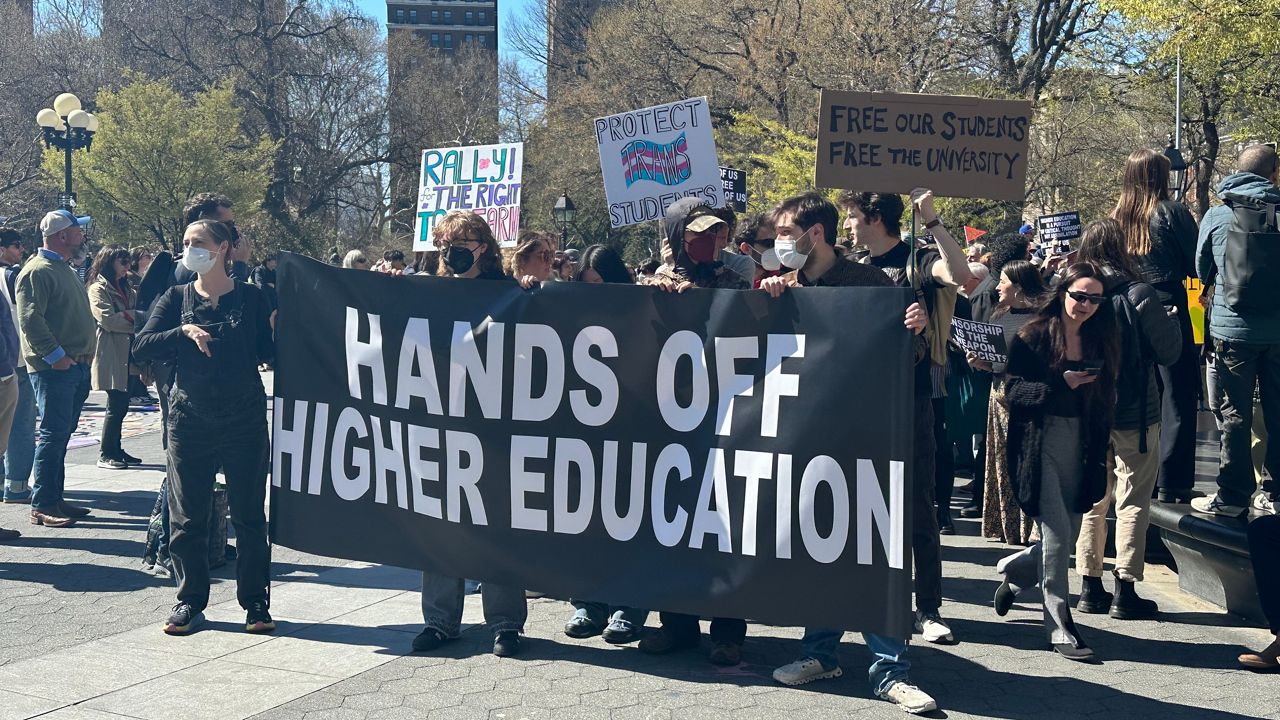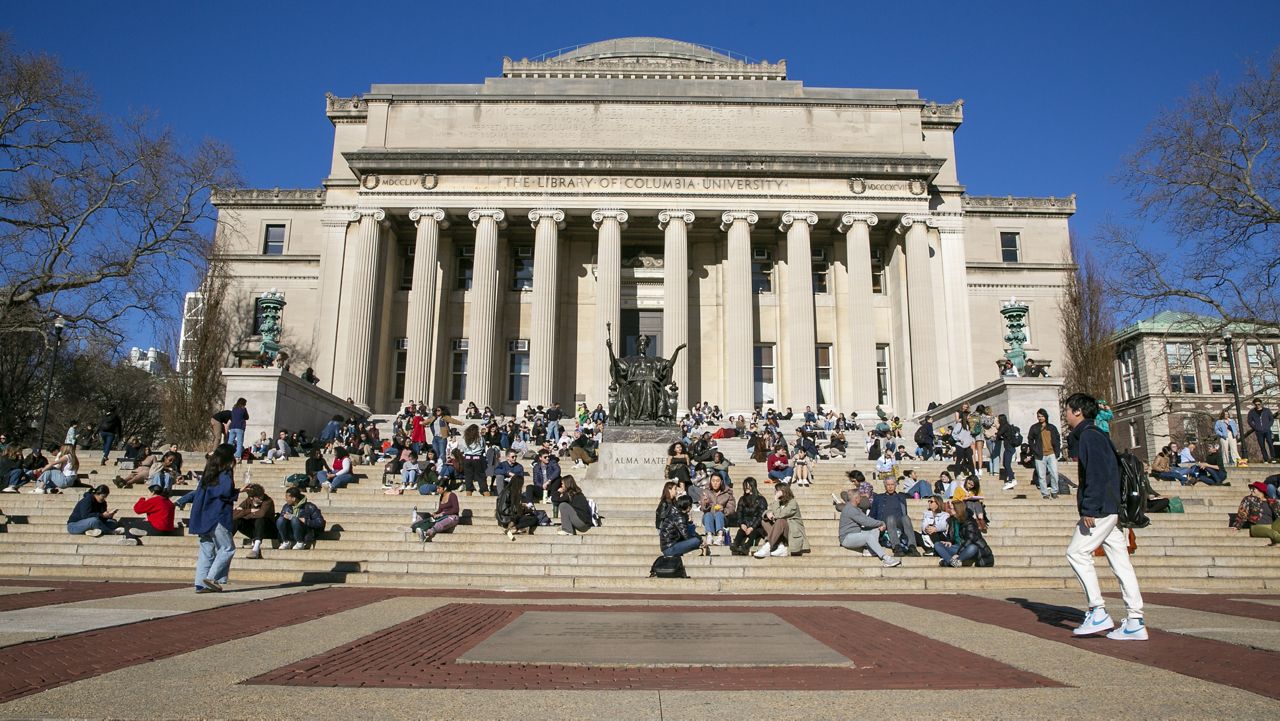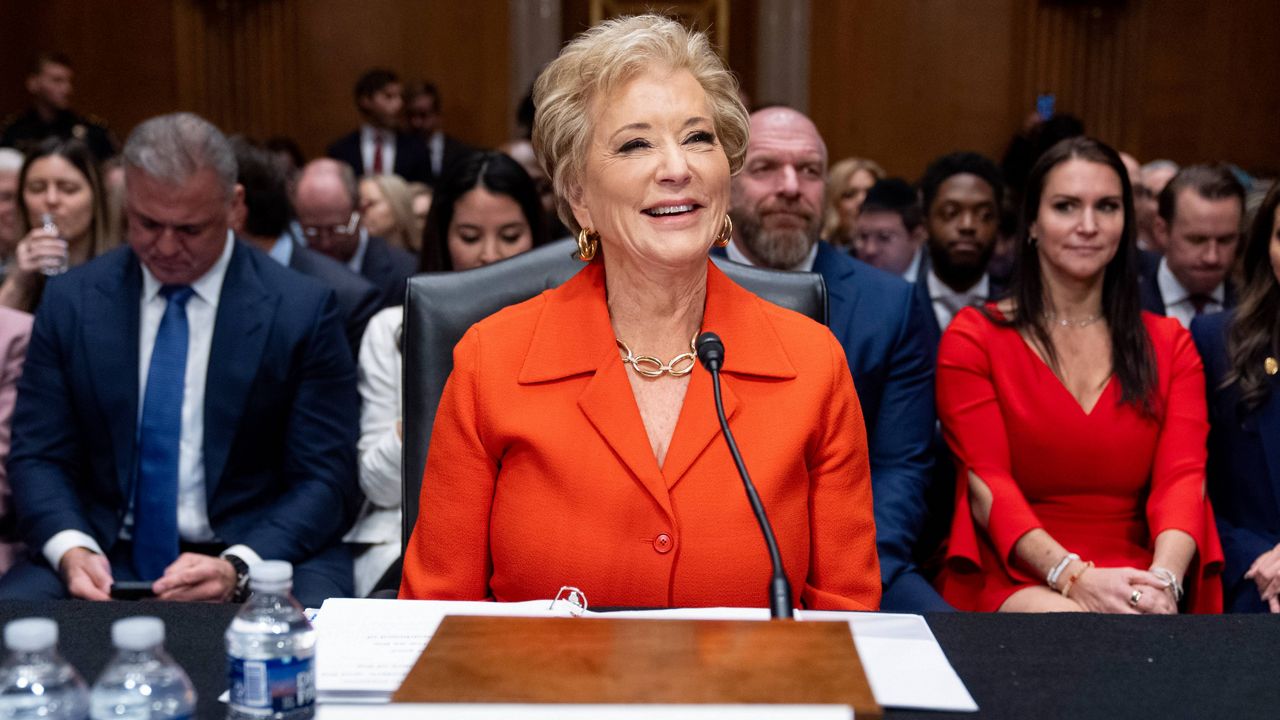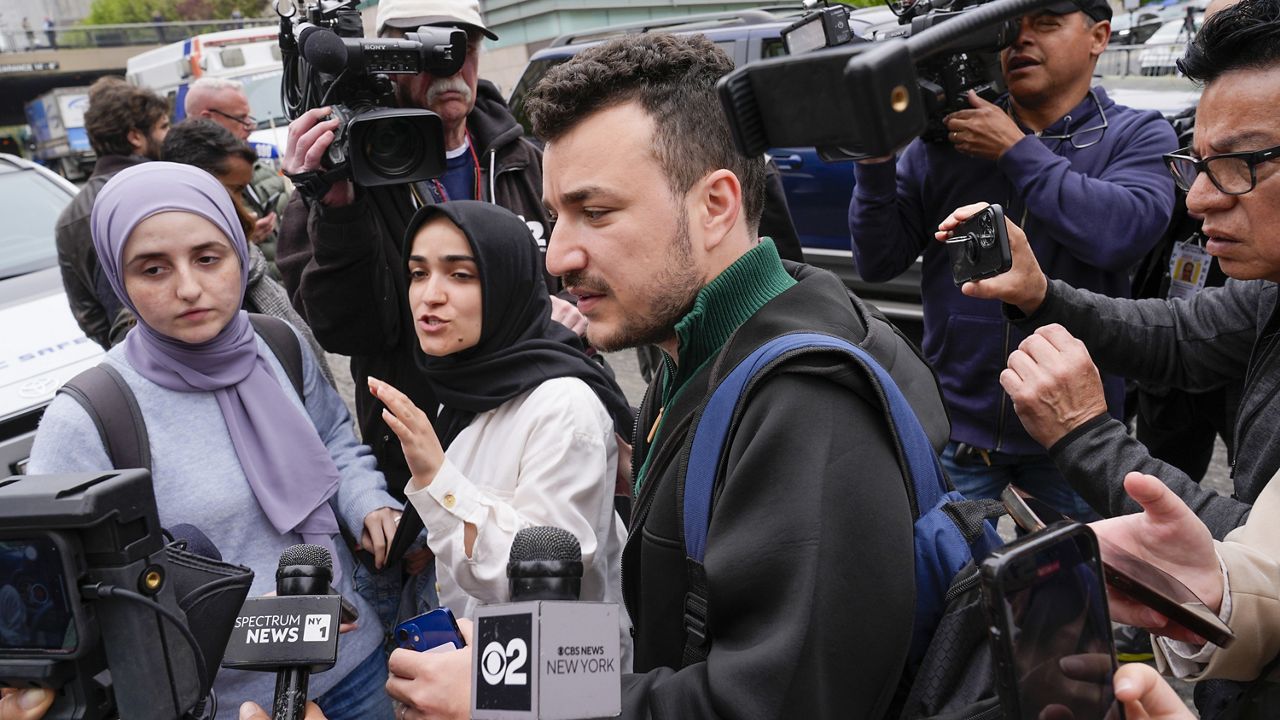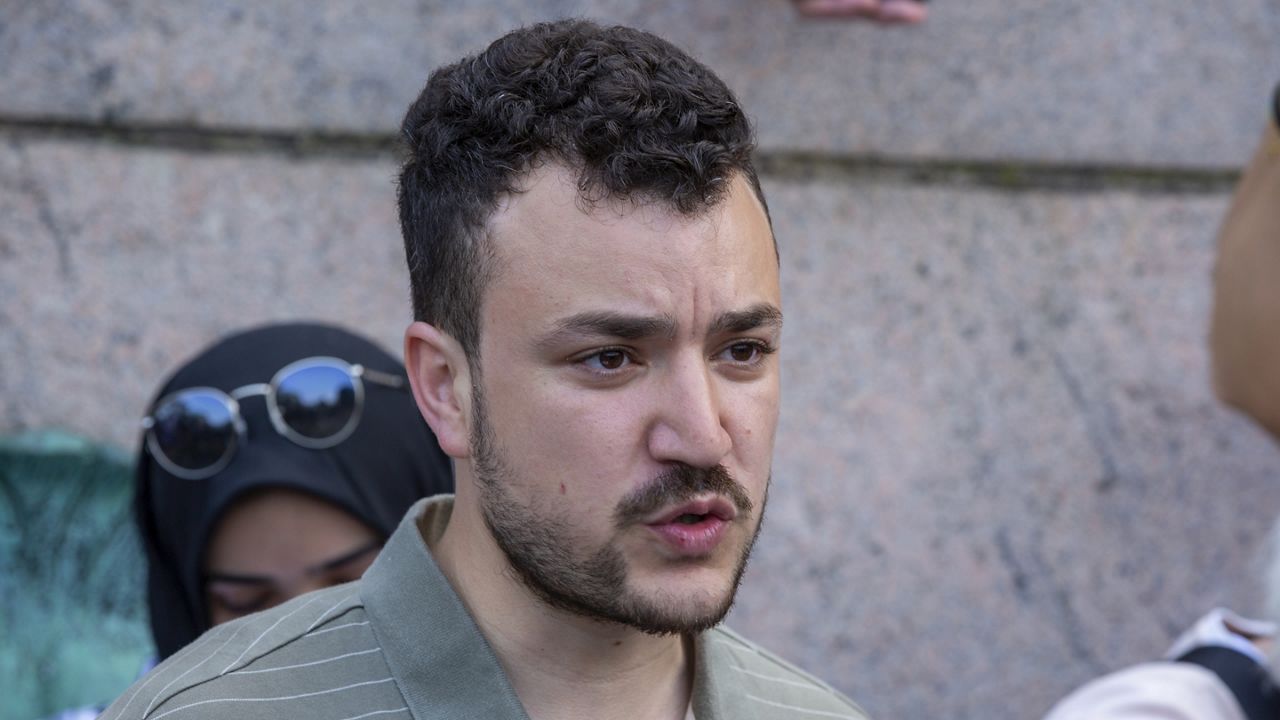As an act of protest, roughly 10 Columbia University students and alumni chained themselves to the main campus gates at 116th Street and Amsterdam Avenue on Monday.
What You Need To Know
- Roughly 10 Columbia University students and alumni chained themselves to the main campus gates at 116th Street and Amsterdam Avenue on Monday
- One of their demands is for Columbia leadership to do more to help free the two Palestinian student activists who remain in U.S. Immigration and Customs Enforcement detention — Mahmoud Khalil and Mohsen Mahdawi
- In a statement to NY1, a Columbia University spokesperson wrote, in part, "We will follow all applicable policies and procedures for addressing potential violations. This small disruption has not impeded the ability of our students to attend classes as normal; all scheduled campus activities have proceeded as planned. Our focus is on ensuring a safe campus for our community and preserving our core mission to teach, create, and advance knowledge"
“This is part of Columbia’s tradition,” David Maloof, a pro-Palestinian protester and Columbia alum, said. “We protested the Vietnam War before my time, but I protested the South Africa apartheid. And now these students are protesting the genocide in Gaza.”
One of their demands is for Columbia leadership to do more to help free the two Palestinian student activists who remain in U.S. Immigration and Customs Enforcement detention — Mahmoud Khalil and Mohsen Mahdawi.
The protest comes one week after Mahdawi was arrested at his immigration appointment in Vermont. Khalil, who was arrested in March, is still being held at an immigration detention center in Louisiana.
Both men are legal permanent U.S. residents.
“Everyone should be opposed to this because it threatens not just their right to free speech, it threatens your right to free speech, my right to free speech, the right of the press, and all our constitutional rights are threatened if we let this go unchallenged,” Darializa Avila Chevalier, another pro-Palestinian protester and Columbia alum, said.
Another demand is for Columbia to become a so-called “sanctuary campus,” meaning protesters want the university to limit its cooperation with federal immigration authorities like ICE.
Protesters say they want the school to do more to protect international students who speak out and protest.
“This is the greatest show of courage, and of love, and the smoke screen is that the Trump administration wants a conservative campus that doesn’t teach love,” Maloof said.
“I think it’s very important for folks to come together. We know that when authoritarian regimes seek to be more repressive. That’s when it’s time for us to be braver than we’ve been,” Avila Chevalier said.
Meanwhile, in a statement to NY1, a Columbia University spokesperson wrote, in part, “We will follow all applicable policies and procedures for addressing potential violations. This small disruption has not impeded the ability of our students to attend classes as normal; all scheduled campus activities have proceeded as planned. Our focus is on ensuring a safe campus for our community and preserving our core mission to teach, create, and advance knowledge.”
However, the concern for some Jewish students at Columbia is that this latest protest is a disruption to the learning environment.
The Trump administration says it’s going after private institutions like Columbia and Harvard University due to alleged inaction on antisemitism on campus.
“Every student should feel safe, but you have to decide, are they really not feeling safe or are they just insulted? Are they just insulted because a group they support — the Israeli Netanyahu government — is being protested against?” Maloof said.
Police said Monday night one protester had been arrested outside of Columbia’s main gates, though the police department later clarified that the protester had only been taken into custody and released with a summons.
Editor's Note: A previous version of this story had incorrect arrest information. It has been corrected.


_DNT_Columbia_Protest_CLEAN_FOR_APPROVAL?wid=320&hei=180&$wide-bg$)

